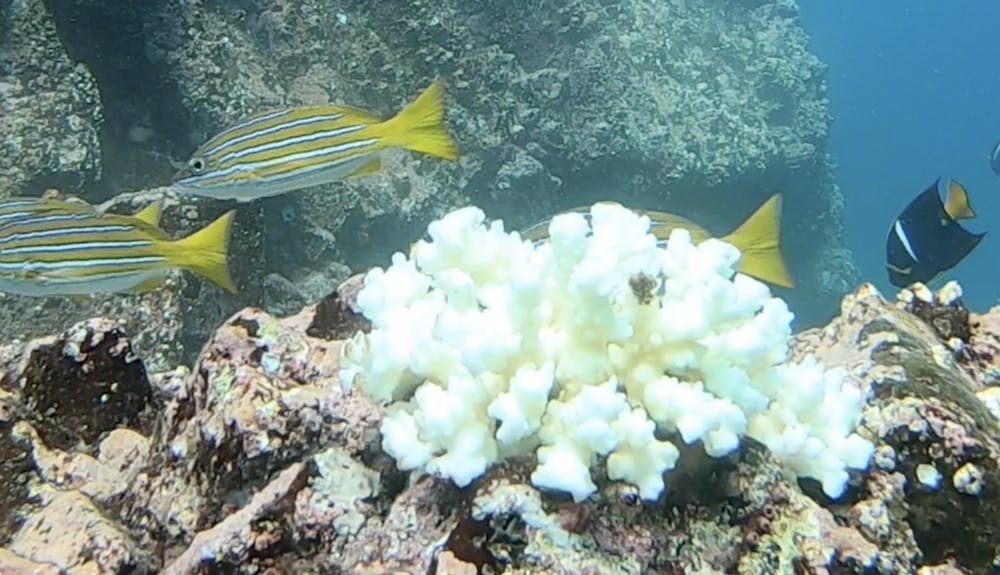A new paper published in the Annual Review of Ecology, Evolution and Systematics emphasizes an unusual approach to researching climate change within marine ecosystems: focusing on variance in addition to trends in ocean temperatures to make more accurate climate change projections.
According to Jon Witman, a professor of biology at the University and one of the paper’s authors, studying variability in ocean temperature is important because it is an “unrecognized area of marine climate change studies” and “has a huge influence” on the resiliency of ecosystems.
John Bruno PhD ’00, a professor of biology at the University of North Carolina Chapel Hill and another author of the paper, noted that a particularly relevant example of this variability is “what are called marine heat waves: a temperature anomaly where it gets really warm in the ocean, just like when you have a heat wave on the land.”
“One of the most interesting things to think about is how recurrent temperature extremes shape individuals, populations and communities,” Witman said.
He explained that exposure to extreme temperatures can have varying effects on marine species. In one respect, “repeated past exposure to temperature swings may enable (a species) to acclimate to future ones,” a phenomenon known as the legacy effect or ecological memory.
But marine heat waves may push the temperature over the threshold for survival, resulting in death, he added.
Coral is one such organism impacted by ecological memory. There have been instances of coral dying upon a second extreme temperature event after surviving the first. Conversely, sometimes the coral survives and establishes a legacy effect.
Bruno said that this phenomenon does not only apply to marine organisms but that the approach could also be used in climate change studies on land environments. He also noted that on “land, it’s not just temperature change,” but that other factors, such as rain events, would factor into ecological climate change projections.
Witman also proposed that other factors, such as habitat variability, should be considered in marine climate change research. For example, the depth hypothesis, which proposes that species would move to deeper water to accommodate increasing temperatures, has limitations.
If water temperatures become too high for rockfish, for instance, then some projections would predict the rockfish migrating to deeper water. In reality, the habitat in deeper water is not suitable for the species because it lacks rocks.
The research group behind the paper consists of Witman, Bruno and Andrew Pershing ’95, the vice president for science at Climate Central. All have University affiliations — Witman as a professor and Bruno and Pershing as alumni — which, according to Witman, contributed to the “great collaboration” between the three.
Bruno and Witman both expressed interest in incorporating temperature variability as a factor in their own research. Bruno described a potential experimental setup of exposing one group of organisms to a stable temperature and another to variable temperatures, and then testing how they would react to an extreme temperature event.
Witman said that in further research he hopes to work with a geneticist, because “there’s a huge area of marine climate change research that is getting into the physiology and genetics of acclimation and adaptation” that would be relevant to these exposures.
Witman said that he is a “cautious optimist” about the new research approach. But to make a change within marine ecosystems “we just have to act on the knowledge we’re getting from ecosystems about climate change effects,” he added.

Francesca Grossberg is a staff writer covering Science and Research. She is a sophomore from New York City studying Health and Human Biology.





